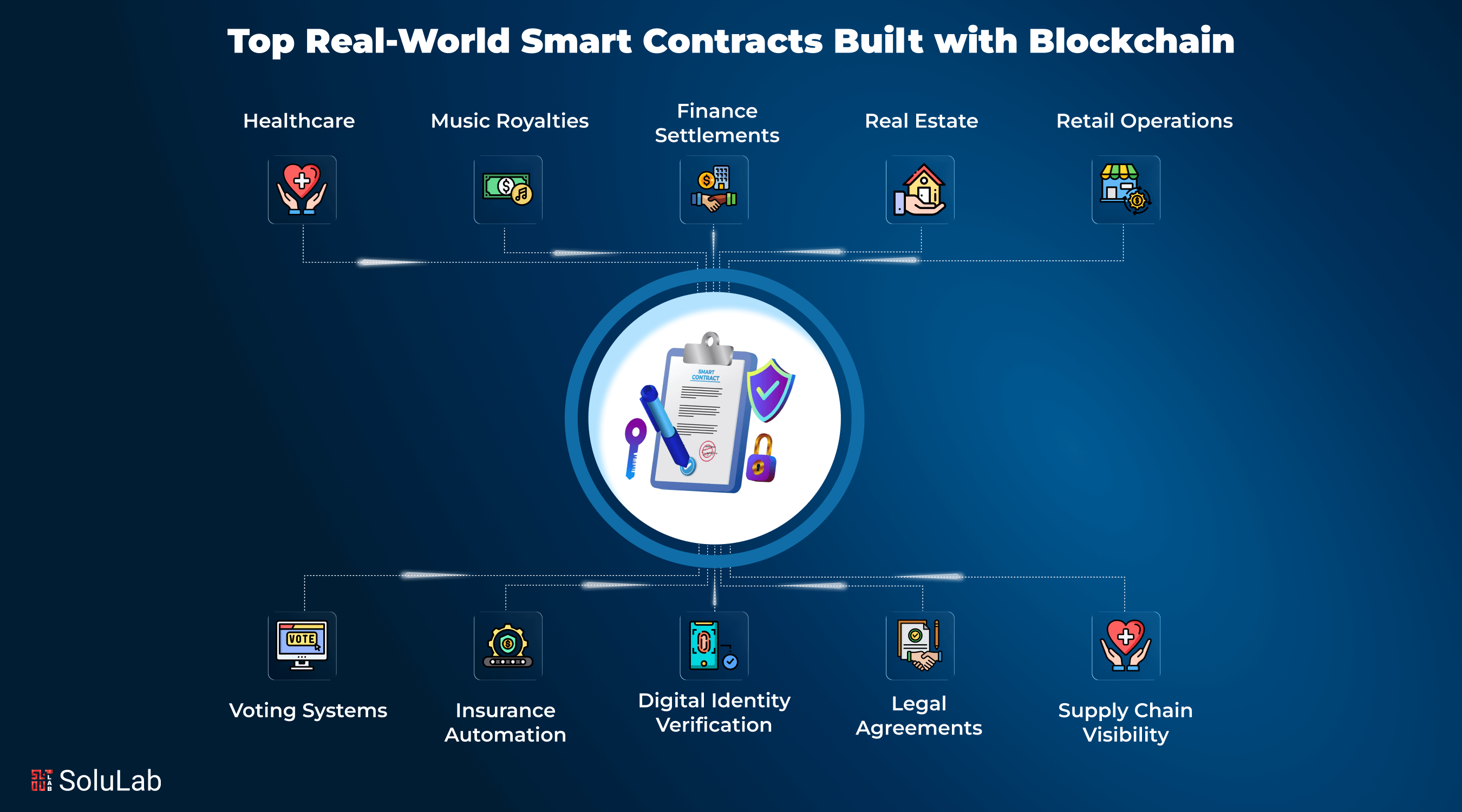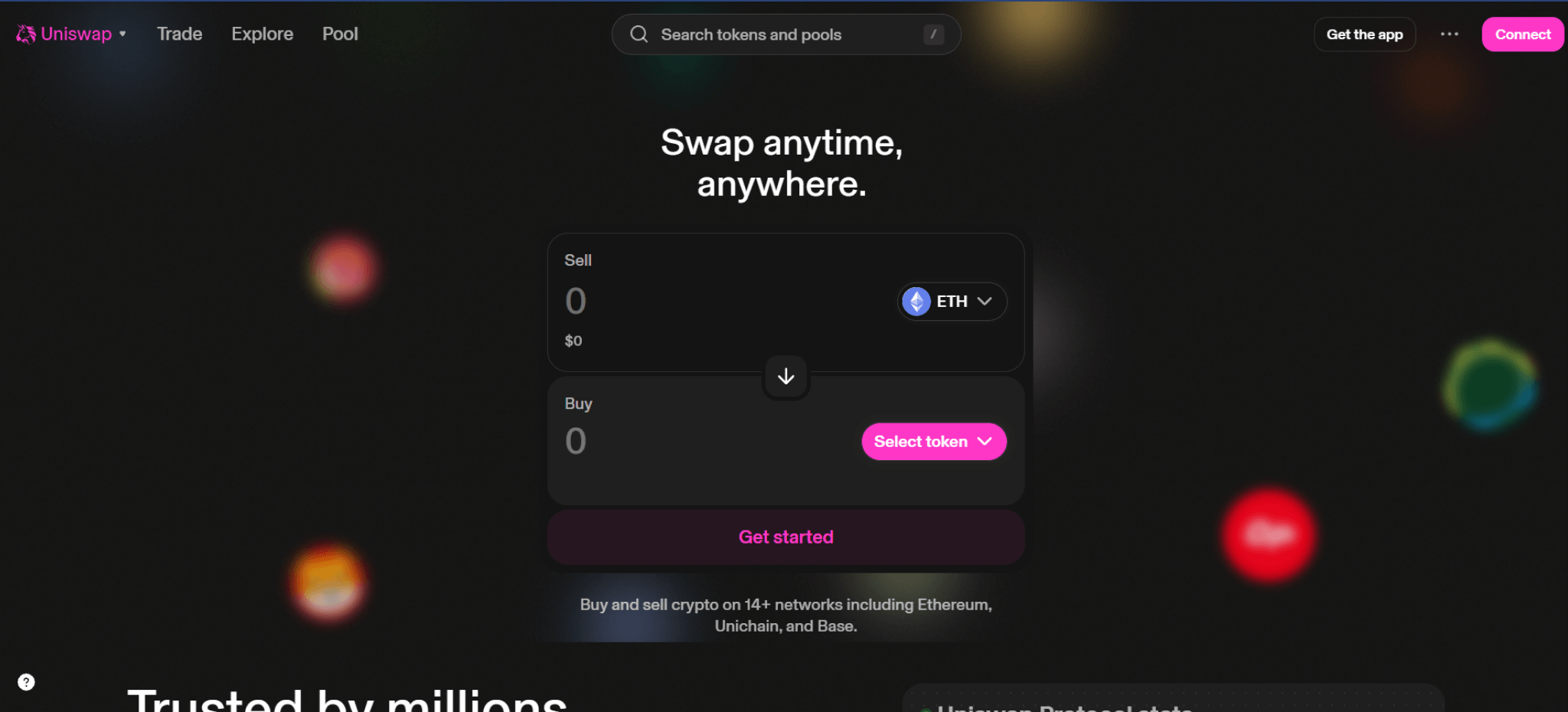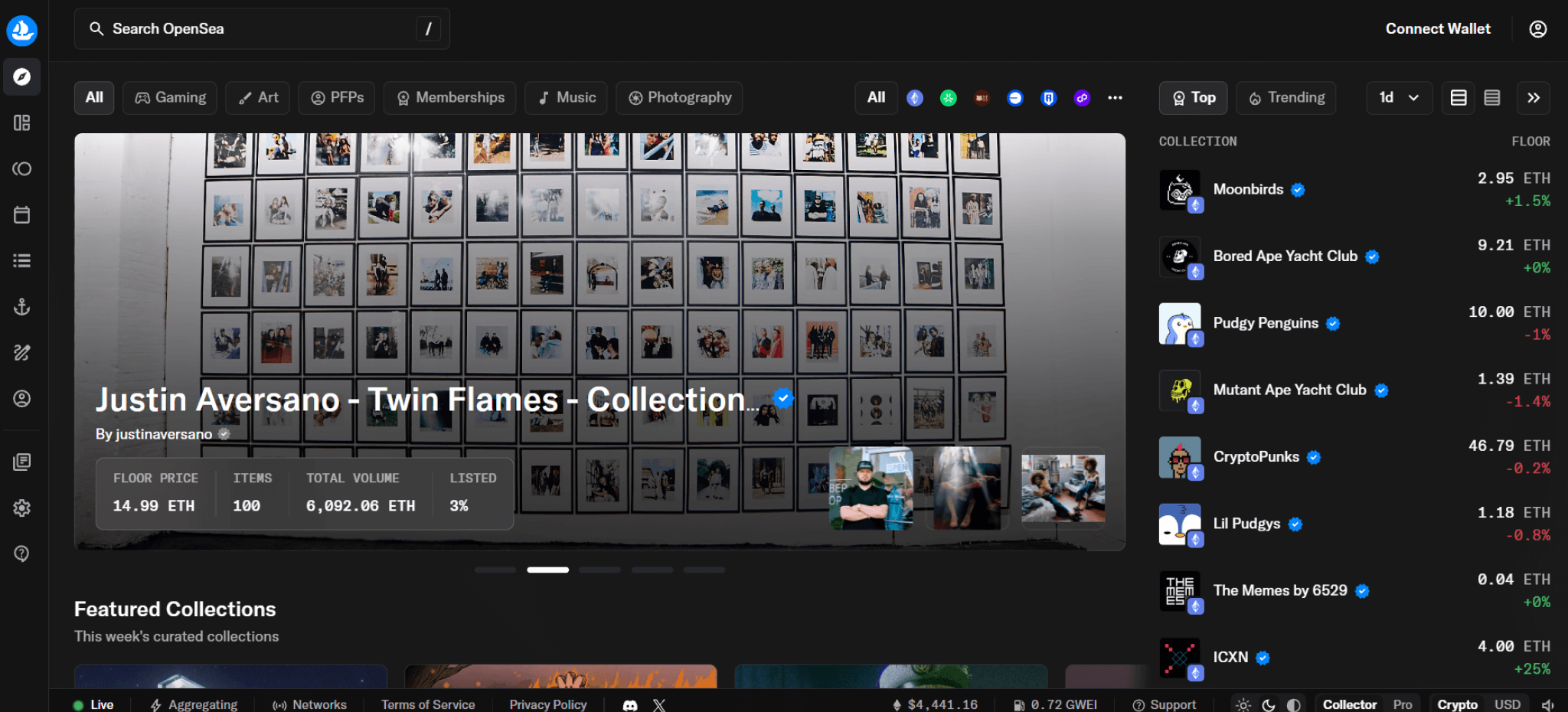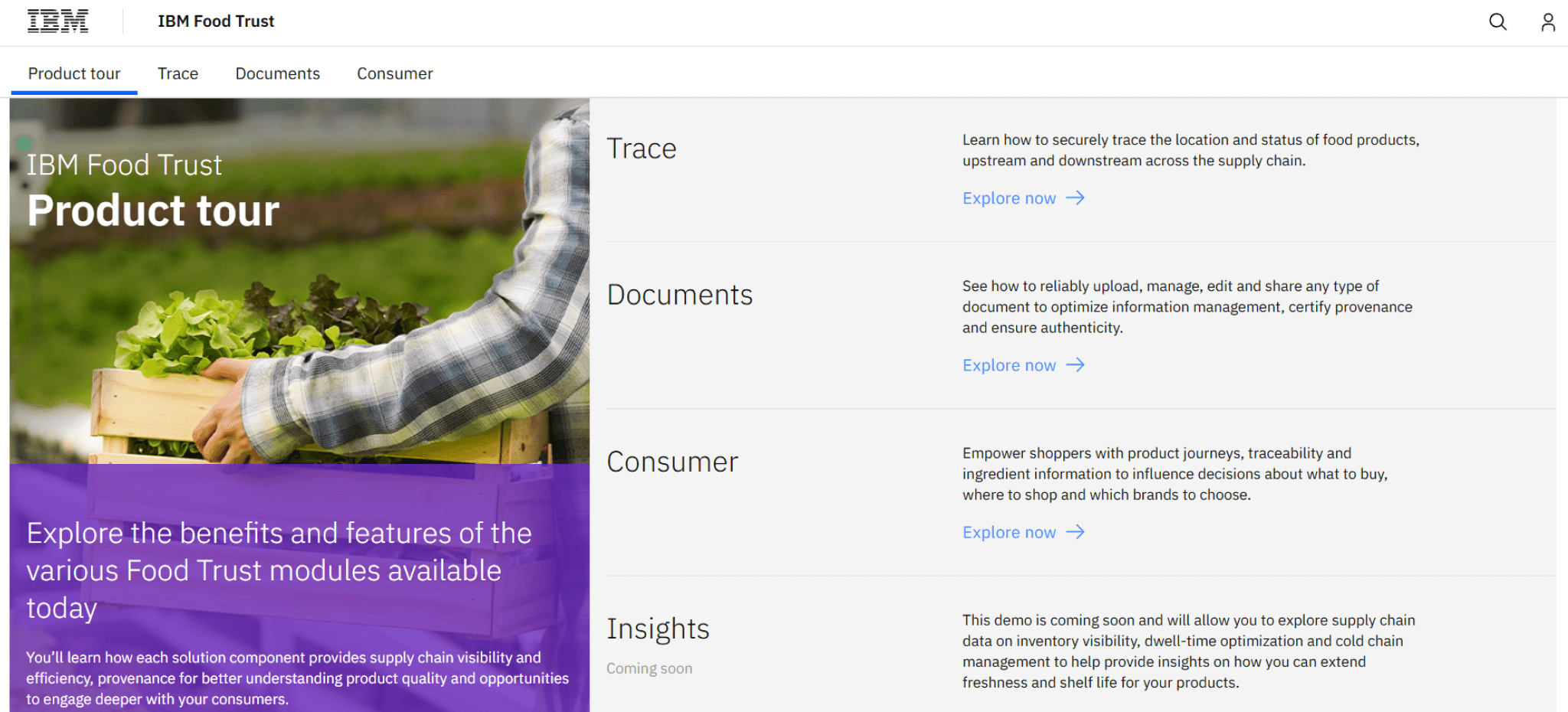
Have you ever signed a contract without a middleman’s involvement? That’s exactly where smart contracts play a key role. These digital contracts operate on a blockchain network, facilitating transactions without the need for lawyers or third parties. Contracts happen more smoothly and automatically once both parties meet the conditions.
Smart contracts for businesses are known for quick payments, data management, and transparency. Let’s check the details in the following discussion to know how smart contacts work and what they offer.
Smart Contracts vs Traditional Contracts
Traditional Contracts are mainly based on people’s conditions and statements. Someone has to review two or multiple parties, legal dealings, and disputes. This takes a long time, resulting in the project delay, adding extra cost, and confusion. Also, middlemen such as lawyers, brokers, all add layers of time and expense to the process.
This is why businesses nowadays are looking for smart contracts that change the dealings completely. They work like a vending machine, simple and automatic. You put in money, and the machine gives you the product. No need for anyone to stand in the middle. The system follows a clear rule: ‘If the condition is met, the action happens.’
This makes smart contracts faster, easier, and more reliable. Once written, they run on the blockchain. No one can change or delete them. Everything stays recorded, secure, and visible to everyone involved. There’s no room for mistakes or delays.
How Smart Contracts Solve Real Business Problems?
Smart contracts are transforming how businesses operate. They bring speed, accuracy, and trust to everyday transactions. By removing middlemen and automating workflows, companies save time and cut costs. These digital agreements ensure that once conditions are met, actions are carried out without delays or manual checks.
Here’s how smart contracts in blockchain bring real value to businesses:
- Removes the Need for Intermediaries: Traditional deals often require brokers, lawyers, or agents. Smart contracts replace them by automating tasks, reducing delays, and service fees.
- Executes Tasks Automatically and Instantly: Once conditions are fulfilled, the contract acts. No approvals or follow-ups needed; this speeds up decisions and transactions.
- Protects Data with Built-in Security: All records are stored on a blockchain. This makes them tamper-proof, encrypted, and impossible to modify after creation.
- Improves Accuracy and Eliminates Human Error: Manual work can lead to mistakes. Smart contracts run on pre-set logic and code, ensuring tasks are carried out exactly as planned.
- Offers Transparent and Auditable Workflows: Every transaction is recorded on a public or permissioned ledger. This allows anyone with access to verify what happened, building trust across parties.
- Supports Complex Business Operations: From real estate sales to multi-party financing deals, smart contracts can manage layered logic and interactions without losing speed or security.
- Reduces Operational and Legal Costs: With fewer people involved and less paperwork, businesses cut down on legal and administrative expenses.
Leading companies use blockchain platforms like Ethereum, Hedera, and Hyperledger to build these smart systems. Faster business processes, greater reliability, and fewer disputes. As more industries adopt blockchain and smart contracts, efficiency and trust become the new standard in digital operations.
10 Major Real-World Applications of Smart Contracts
1. Healthcare and Clinical Trials
Hospitals store sensitive data that needs protection and quick access. Smart contracts help store medical records on the blockchain. Only the patient can grant access using a private key. This ensures safety and accuracy in diagnosis.
In clinical trials, researchers use smart contracts to automate data entry, patient consent, and trial protocols. They also simplify billing and insurance claims. This cuts administrative costs and improves patient outcomes.
2. Music Royalties and Creator Payments
Musicians often wait months to receive royalty payments. Smart contracts fix this by making instant payments. When a song is streamed, artists and producers get their share right away.
Platforms like Tune.fm use tokens to pay creators directly. Artists can even mint exclusive content as NFTs and sell them to fans. This gives artists better control and a new revenue model.
3. Trade Finance and Cross-Border Settlements
International trade involves banks, shippers, and regulators. Delays are common. Smart contracts automate every step, from document checks to payment release. They also verify shipment tracking and reduce fraud.
Banks use smart contracts to speed up cross-border transactions. Projects like AllianceBlock link blockchain-based finance with traditional banking. This builds a safer, faster global trade environment.
4. Real Estate Transactions and Tokenized Ownership
Buying or selling property requires paperwork and legal checks. Smart contracts on blockchain simplify this by automating payment, ownership transfer, and escrow platforms. Everything is handled digitally, reducing human error.
Real estate firms use blockchain to offer fractional ownership. Buyers can purchase property shares as tokens. This opens new investment opportunities for people with limited budgets in the form of asset tokenization.
5. Retail Operations and Inventory Tracking
Retailers often spend time managing payroll, inventory, and vendor payments. Smart contracts automate these tasks. This helps store owners save time and money.
For example, Dropp allows retailers to accept micropayments in digital currencies. Retailers also use blockchain tags to track inventory in real time, improving supply chain visibility and reducing theft or losses.
6. Voting Systems and Digital Elections
Smart contracts help secure digital voting systems. Each vote is recorded on the blockchain and encrypted. No one can alter it. Voter identity is verified digitally.
This makes elections faster, cheaper, and more transparent. Voter turnout may increase as people can vote online. Some governments are testing blockchain-based elections to ensure fairness and cut costs.
7. Insurance Automation and Claims Processing
Filing insurance claims takes time and often causes disputes. Smart contracts automate claims based on policy rules. Once a condition is met, like a flight delay or hospital admission, the contract pays out automatically.
This cuts down waiting time and reduces fraud. Insurance companies can also use smart contracts to create or renew policies without manual processing.
8. Legal Agreements and Corporate Governance
Legal documents usually take days to process. Smart contracts help create and manage business agreements digitally. Once both parties agree, the system executes the contract.
This reduces legal fees and processing delays. Companies also use smart contracts for tasks like board voting, fund transfers, or performance bonuses.
9. Digital Identity Verification
Third parties often manage digital identities. Smart contracts enable users to securely store and manage their identities on the blockchain. Only trusted apps can access this data.
This improves security, privacy, and user control. Banks use smart contracts for KYC. Healthcare providers use them to access patient data. Governments use them to manage citizen records.
10. Supply Chain Visibility and Escalation Handling
Smart contracts help businesses track goods from source to delivery. Each movement is logged. If anything goes wrong, the contract triggers alerts or penalties.
Platforms like Datahash help prevent fraud in wine supply chains by verifying product origins. These systems reduce losses and improve trust between partners.
Why is There a Need for Smart Contract Integration for Enterprises?
Enterprises want more control, speed, and security. Manual systems are slow and prone to error. Smart contracts help automate workflows and maintain compliance.
Smart contracts also reduce dependency on third parties. Every action is recorded, making audits easier. Data stays secure and transparent, even across multiple parties.
With growing global operations, businesses need reliable automation. Smart contracts offer just that- faster actions, better records, and less risk.
Industry Leaders Already Using Smart Contracts
Global companies are already using smart contract services for enhanced dealings and partnerships. The following are some leading smart contract-using companies across the globe. Let’s check out how Smart Contacts are changing the business lifestyle.
-
Uniswap
Uniswap is a decentralized crypto exchange that replaced the need for traditional brokers. Every trade is handled automatically using smart contracts. When a user swaps tokens, the contract checks the price, matches the order, and completes the transaction, without a middleman. This has allowed billions in crypto trading to happen in a trustless, secure, and permissionless way. Smart contracts made it possible to build a fully automated financial system that runs 24/7.

-
Chainlink
Chainlink solved one of the biggest challenges for smart contracts: getting real-world data into blockchain. It acts as a bridge between on-chain and off-chain systems. For example, a smart insurance contract can use Chainlink to check weather data and trigger payouts for crop damage. Without smart contracts and Chainlink’s oracles, this kind of automation would need multiple parties. Chainlink has opened the door for smart contracts in industries like gaming, insurance, and decentralized finance.

-
OpenSea
OpenSea is the largest NFT marketplace. Each digital item listed or sold runs through smart contracts. These contracts manage ownership, payments, royalties, and even resale commissions automatically. Artists get paid instantly when their NFTs are sold or resold. Smart contracts made this creator-first economy possible by cutting out platforms that used to take high fees and slow down payments.

-
IBM + Food Trust
IBM Food Trust uses blockchain and smart contracts to trace food products from farm to store. This helps retailers and consumers track where their food comes from. For instance, when a shipment of lettuce leaves a farm, a smart contract records it. If a recall is needed later, companies know exactly where it went. Smart contracts also automate alerts and speed up responses in case of contamination. This makes the food supply chain safer and more transparent.

The Road Ahead for Smart Contracts in Blockchain
Blockchain with Smart contracts is just getting started. Developers are making them easier to build and more scalable. Future industries like education, logistics, and public services will also benefit. With better coding practices and legal clarity, adoption will grow.
Key shifts to expect in the coming years:
- Cross-chain compatibility will let smart contracts work across multiple blockchains with ease.
- Low-code tools will allow non-developers to create and launch smart contracts quickly.
- Integration with IoT will bring automation to industries like manufacturing and smart homes.
- Legal recognition of smart contracts will improve their validity in courts and regulatory systems.
- Wider enterprise adoption will simplify operations in sectors like banking, healthcare, and education.
Smart contracts for businesses are changing the way deals are handled, handling data, and running systems.
Conclusion
As per the above details, we get to know that smart contracts are not just some technological term. They are transforming the business dealings, payment transactions, data, and trust. This automatic system decreases the cost while increasing the transparency, speed, and real-time execution.
SoluLab is one of the top smart contract development companies. We offer smart contract development solutions tailored for enterprises in different industries. If you are ready to build a smart contract blockchain, contact us today.
FAQs
1. What are smart contracts in blockchain, and how do they work?
Smart contracts are digital agreements on blockchain. Once conditions are met, they auto-execute tasks like payments or data updates, without needing middlemen like brokers or lawyers.
2. How do smart contracts help businesses?
Smart contracts reduce paperwork, cut costs, and speed up operations. They automate agreements, making business dealings secure, transparent, and error-free across finance, real estate, healthcare, and other industries.
3. Can smart contracts be used in real estate?
Yes. Smart contracts handle payments, ownership transfer, and escrow services. They remove legal delays, reduce errors, and allow fractional property ownership through tokenization for easier investments.
4. Are smart contracts safe to use?
Smart contracts run on encrypted blockchain networks. Once deployed, they cannot be changed. This makes them tamper-proof, transparent, and secure, reducing the risks of fraud or manipulation in business processes.
5. Which companies are already using smart contracts?
Uniswap, Chainlink, OpenSea, and IBM Food Trust use smart contracts for trading, data feeds, NFTs, and supply chain tracking. This is proving real-world success in blockchain-powered automation.







